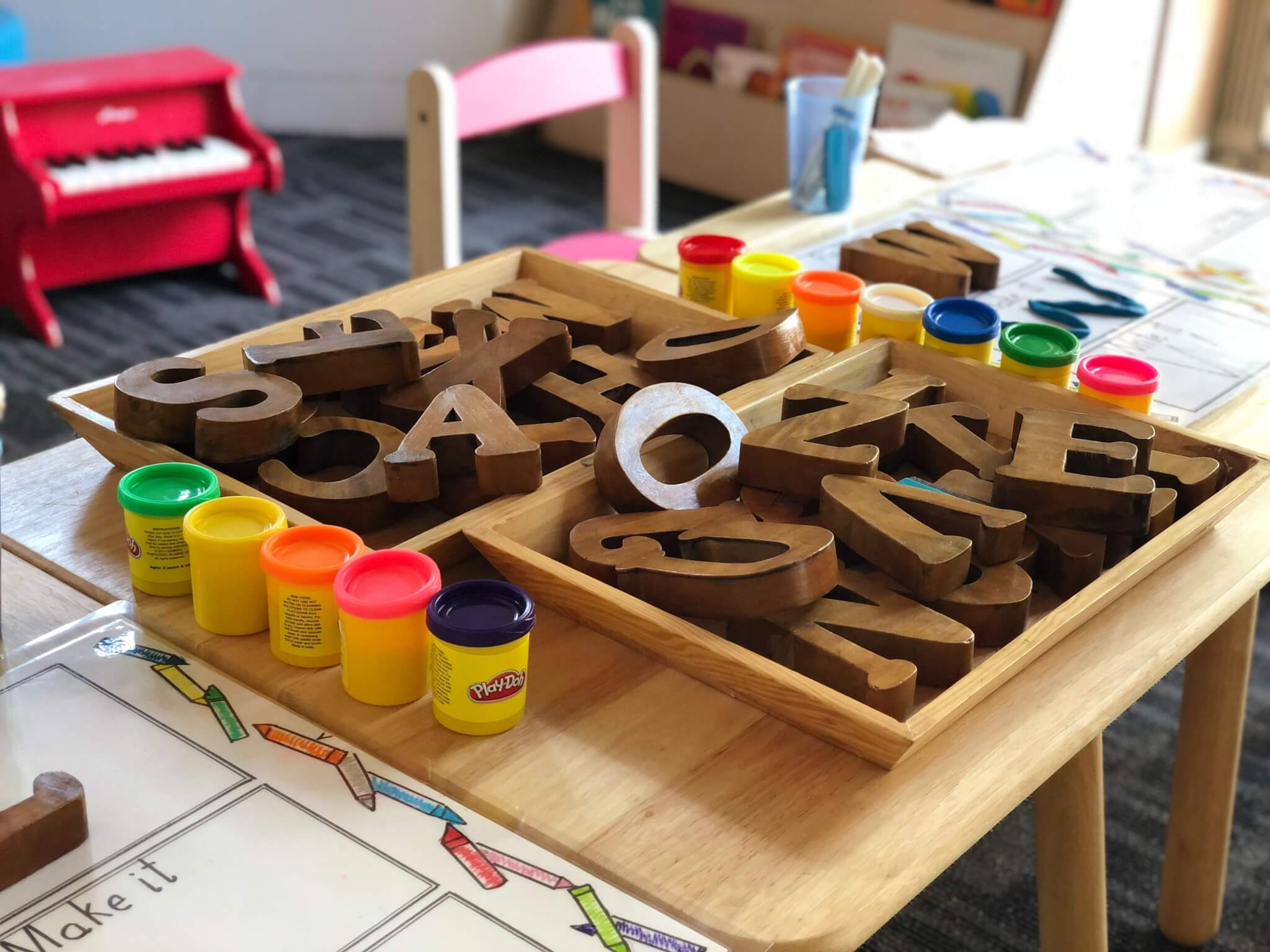
Photo by Gautam Arora on Unsplash
The program known for its early childhood education advantages is now available to more Virginians.
Most parents wish their kids could get a head start in life. For some families in Virginia, that’s a literal option now, thanks to persistence from state lawmakers.
Earlier this month, Sen. Tim Kaine and six other senators — all Democrats with the exception of Vermont’s Sen. Bernie Sanders who is an Independent — penned a joint letter to Xavier Becerra, Secretary of the Department of Health and Human Services (HHS).
In the document, the senators requested expanded access to affordable, high-quality early childhood education through Head Start programs. Such programs have been around for more than half a century, and oftentimes provide more than meets the eye. In addition to the programs’ claim to fame of making early childhood education accessible for low-income households and improving school readiness for children under age five, Head Start also ensures that families have access to health, nutrition, dental, mental health, social services, and parental involvement opportunities.
The letter noted that some households that could benefit from the programs missed the opportunity by a slim margin because they earned slightly more than the federal poverty level (FPL). While the FPL depends on the number of people in a household, the cutoff for a family of four in 2022 is $27,750.
For Head Start eligibility, families can earn up to 100% of the Department FPL. Additionally, 35% of Head Start slots can go to households earning up to 130% of the FPL. Select families may also benefit from the program if they receive certain forms of public assistance, like Temporary Assistance for Needy Families (TANF) or Supplemental Security Income (SSI). Children in foster care or those experiencing homelessness are also eligible to participate in Head Start programs.
Kaine and the group of senators asked that eligibility for Head Start programs extend to families with children who participate in both the Supplemental Nutrition Assistance Program (SNAP) and the Special Supplemental Nutrition Program for Women, Infants, and Children (WIC).
“Adding SNAP and WIC will also underscore the critical links between nutrition support and early childhood education, and help connect pregnant WIC recipients to Early Head Start services at a critical and vulnerable juncture in their lives,” the letter read in part.
The following week after the senators sent the letter dated April 14, they received a positive response. On April 22, the HHS announced that it was expanding the categorical eligibility requirements for Head Start programs to include families that received SNAP benefits.
In part, the report from the HHS’s Administration for Children and Families (ACF) read: “Previously, we had not considered including SNAP in this definition [of public assistance, as used in the Head Start statute] because it had slightly higher income threshold than the base income threshold for Head Start services. However, recently there has been a sharp reduction in families that establish eligibility through the current public assistance definition, so we have reconsidered this interpretation to make the public assistance route more available to families and grantees.”
The ACF said that adding SNAP recipients to the eligibility pool would also help reduce “administrative burdens” by simplifying the income documentation process. A single document can prove income for those receiving SNAP benefits, whereas the process of documenting income eligibility requires “a large number of pay stubs or other income documentation.” It also helps cut down on duplicative paperwork.
Despite the change, Head Start programs will still adhere to recruitment and selection criteria and will prioritize enrollment for families who may benefit most from the services offered. Nationally, the change impacts about 150,000 families who receive SNAP that have incomes above 130% of the poverty line. The addition of eligible individuals to the program does not guarantee enrollment, and the ACF noted that the recent inclusion is unlikely to “substantially expand” the number of Head Start participants with incomes exceeding 100% of the FPL.
After the announcement, Kaine issued the following statement: “Head Start is essential to supporting the development, health, and well-being of children from low-income families. After urging the Biden Administration to improve access to Head Start programs, I’m thrilled to see that more families in Virginia and across the country will be able to benefit from these services.”
Support Our Cause
Thank you for taking the time to read our work. Before you go, we hope you'll consider supporting our values-driven journalism, which has always strived to make clear what's really at stake for Virginians and our future.
Since day one, our goal here at Dogwood has always been to empower people across the commonwealth with fact-based news and information. We believe that when people are armed with knowledge about what's happening in their local, state, and federal governments—including who is working on their behalf and who is actively trying to block efforts aimed at improving the daily lives of Virginia families—they will be inspired to become civically engaged.


VIDEO: Your support matters!
Your support matters! Donate today. @vadogwoodnews Your support matters! Visit our link in bio to donate today. #virginianews #virginia #community...

Op-Ed: Virginia’s new Democratic majorities pass key bills to improve your lives, but will Youngkin sign them?
The 2024 Virginia General Assembly regular session has wrapped up. It was a peculiar session from the outset, with Democratic majorities in the...

Op-Ed: Why Virginia Needs A Constitutional Amendment Protecting Reproductive Freedom
Virginia’s recent election season in 2023 drew in eyes from all over the country. Reproductive freedom was on the line and Virginia remained the...

From the state rock to the state flower, here’s how Virginia got its symbols
Have you ever wondered why the Dogwood is the state flower? Or how the cardinal became the state bird? We’re here to answer those questions and more...

VIDEO: Second-gentleman Douglas Emhoff gives speech on reproductive freedom
Second gentleman, Douglas Emhoff touched on reproductive freedom not only being a woman's issue but "an everyone's issue" during the Biden-Harris...

Glenn Youngkin and the terrible, horrible, no good, very bad night
Election Day 2023 has come and gone, and while there are votes to be counted, one thing is perfectly clear: Virginians unequivocally rejected Gov....





